

Morag Barrett is a catalyst for organizational transformation, uniting the power of people and relationships to drive exceptional results. With a heart for connecting the human touch to business strategies, Morag, along with her team, designs and facilitates engaging (and fun) leadership development programs. These programs aren't just stand-alone events—they become an integral part of how teams operate, thrive, and triumph, together.
With a rich background in finance, senior leadership development, and more than 25 years of global leadership development, Morag real-world insights are invaluable. To date, she has enriched more than 20,000 leaders from 20 countries, and six continents.
Organizations consistently trust Morag’s expertise when they need to design high-impact leadership programs that:
-- Foster a culture of connection, driving results and elevating collaboration and teamwork.
-- Establish a shared mindset and common language, defining the essential qualities needed for leader and manager success within the organization.
-- Cultivates a dynamic community where leaders are continuous learners, forming strong relationships and a vibrant network that champions peer coaching.
-- Boosts vital leadership capabilities at all levels, aligned with the organization’s strategic objectives and growth initiatives.
With an understanding that one size does not fit all every program Morag and SkyeTeam design is tailored and white labelled for your organization. From virtual to in-person workshops, individual assessments, action learning sessions, personalized and group coaching, to an innovative app-based leadership challenge and beyond, each element is woven with your company’s unique language and culture. The outcome? The perfect blueprint for success.
Morag Barrett is more than a seasoned coach; she is an adept facilitator and compelling speaker, renowned for crafting transformative programs and guiding sessions with unparalleled efficacy. While she is a certified coach with Marshall Goldsmith Stakeholder Centered Coaching® and an alumnus of the Corporate Coach University, it is her powerful blend of program design and facilitation skills that truly distinguishes her.
Morag holds a master's degree in human resource management from De Montfort University, UK. Beyond her educational and professional accolades, she’s an award-winning author of three pivotal books: Cultivate: The Power of Winning Relationships, The Future-Proof Workplace, and You, Me, We: Why we all need a friend at work (and how to show up as one!).
If that hasn’t tired you out, she’s also the proud mother to three 6ft sons, and a classical musician. When not at work you’ll find Morag playing the bassoon, ballroom dancing, or travelling (not all at the same time).
Available For: Authoring, Consulting, Influencing, Speaking
Travels From: Colorado
Speaking Topics: Business of Relationships; Leadership & High Performing Teams; The Future of Work
| Morag Barrett | Points |
|---|---|
| Academic | 0 |
| Author | 577 |
| Influencer | 138 |
| Speaker | 39 |
| Entrepreneur | 30 |
| Total | 784 |
Points based upon Thinkers360 patent-pending algorithm.
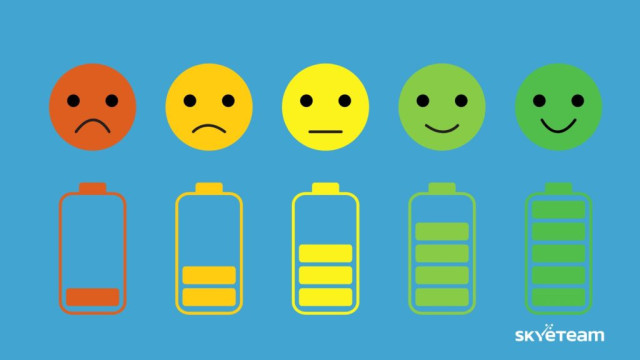 Lost Your Mojo? How to Regain Your Mojo in 5 Simple Steps
Lost Your Mojo? How to Regain Your Mojo in 5 Simple Steps
Tags: HR, Leadership, Management
 Workplace Connection: Why We All Need a Work Mate (And No, The Office Dog Doesn’t Count)
Workplace Connection: Why We All Need a Work Mate (And No, The Office Dog Doesn’t Count)
Tags: HR, Leadership, Management
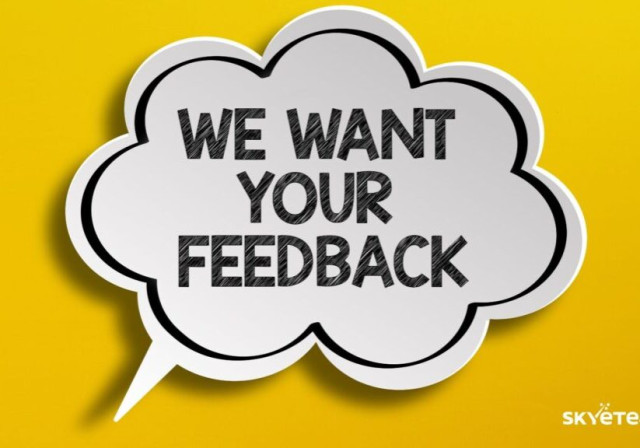 The Power of Effective Feedback: 10 Lessons For Giving and Receiving Feedback
The Power of Effective Feedback: 10 Lessons For Giving and Receiving Feedback
Tags: HR, Leadership, Management
 Are you a Reluctant Learner?
Are you a Reluctant Learner?
Tags: HR, Leadership, Management
 Leading Beyond Your Authority: Challenge the Status Quo
Leading Beyond Your Authority: Challenge the Status Quo
Tags: HR, Leadership, Management
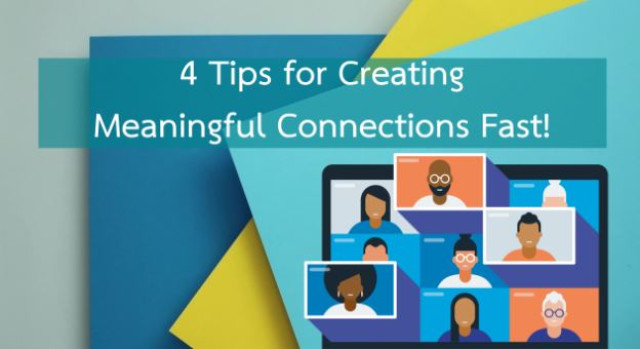 4 Powerful Tips for Creating Meaningful Connections Fast.
4 Powerful Tips for Creating Meaningful Connections Fast.
Tags: HR, Leadership, Management
 How to Create a Culture of Connection (in under an hour).
How to Create a Culture of Connection (in under an hour).
Tags: HR, Leadership, Management
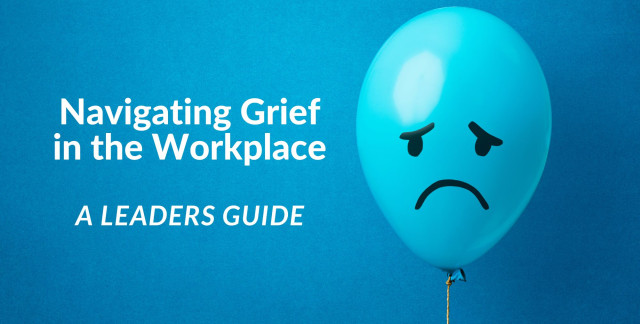 Navigating Grief in the Workplace: A Guide for Leaders
Navigating Grief in the Workplace: A Guide for Leaders
Tags: Leadership, Management, Mental Health
Tags: Leadership, Management
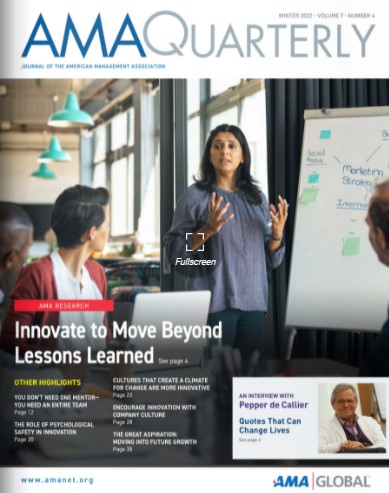 You Don't Need One Mentor. You Need an Entire Team!
You Don't Need One Mentor. You Need an Entire Team!
Tags: Management, Leadership, HR
 FINDING YOUR PLACE IN THE WORK OF THE FUTURE
FINDING YOUR PLACE IN THE WORK OF THE FUTURE
Tags: Future of Work, Leadership, Management
Tags: Leadership, Management
 Who ya gonna call?
Who ya gonna call?
Tags: Leadership, Future of Work, Public Relations
 Lost Your Mojo? Me Too. Here's how I found it again
Lost Your Mojo? Me Too. Here's how I found it again
Tags: Health and Wellness, HR, Leadership
 Is Your Leadership Showing?
Is Your Leadership Showing?
Tags: HR, Leadership
 7 WAYS TO CREATE CONNECTION REMOTELY
7 WAYS TO CREATE CONNECTION REMOTELY
Tags: Management, Leadership, HR
 7 WAYS TO CREATE CONNECTION REMOTELY
7 WAYS TO CREATE CONNECTION REMOTELY
Tags: Leadership
 One Thing... New Year Resolutions and Goal Setting
One Thing... New Year Resolutions and Goal Setting
Tags: Health and Wellness, HR, Leadership
 3 SIMPLE BUT EFFECTIVE TIME MANAGEMENT TIPS IN UNDER 3 MINUTES!
3 SIMPLE BUT EFFECTIVE TIME MANAGEMENT TIPS IN UNDER 3 MINUTES!
Tags: Management, Leadership, HR
 If You Don't Like the Show - Change the Channel
If You Don't Like the Show - Change the Channel
Tags: Health and Wellness, HR, Leadership
 HOW LEADERS ARE RESPONDING TO COVID19
HOW LEADERS ARE RESPONDING TO COVID19
Tags: Management, Leadership, COVID19
 I Have a Problem... and You do Too
I Have a Problem... and You do Too
Tags: Management, Leadership
Tags: Culture, Leadership, Management
Tags: HR, Leadership, Management
Tags: Culture, HR, Leadership
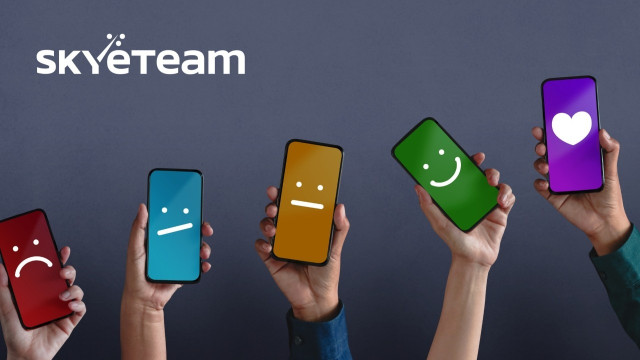 10 Lessons For Giving and Receiving Feedback
10 Lessons For Giving and Receiving Feedback
Tags: HR, Leadership, Management
 The Hidden Cost of Workplace Disconnection: Why Better Meetings Aren't the Answer
The Hidden Cost of Workplace Disconnection: Why Better Meetings Aren't the Answer
Tags: HR, Leadership, Management
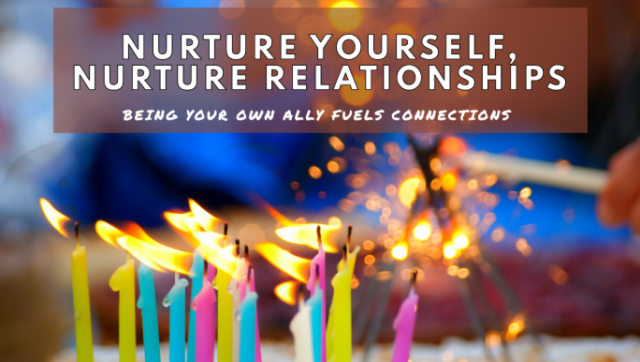 Nurturing the Relationship with Yourself: How Being Your Own Ally Fuels Meaningful Connections with Others
Nurturing the Relationship with Yourself: How Being Your Own Ally Fuels Meaningful Connections with Others
Tags: HR, Leadership, Management
 AI Is Making Me Dumber (But It Makes Me Look So Smart!)
AI Is Making Me Dumber (But It Makes Me Look So Smart!)
Tags: HR, Leadership, Management
 Recalculating... Navigating Change Without Losing Your Mind (or Your Team)
Recalculating... Navigating Change Without Losing Your Mind (or Your Team)
Tags: HR, Leadership, Management
 Thriving Together: 6 Ways to Navigate Workplace Differences and Build Better Relationships
Thriving Together: 6 Ways to Navigate Workplace Differences and Build Better Relationships
Tags: HR, Leadership, Management
 The Four Lists That Will Change How You Work (and Maybe Your Life)
The Four Lists That Will Change How You Work (and Maybe Your Life)
Tags: HR, Leadership, Management
 Cultivating Connection: The Secret Sauce to Thriving at Work
Cultivating Connection: The Secret Sauce to Thriving at Work
Tags: HR, Leadership, Management
 Performance vs Presence: Creating Meaningful Connection in the midst of Return-to-Office
Performance vs Presence: Creating Meaningful Connection in the midst of Return-to-Office
Tags: HR, Leadership, Management
 Behind the Beads: The Hidden Infrastructure of Celebration
Behind the Beads: The Hidden Infrastructure of Celebration
Tags: HR, Leadership, Management
 From Spectator to Sequins: The Learning Curve of Mardi Gras
From Spectator to Sequins: The Learning Curve of Mardi Gras
Tags: HR, Leadership, Management
 Building Professional Connections: From Awkward to Awesome
Building Professional Connections: From Awkward to Awesome
Tags: HR, Leadership, Management
 Making Your Mentor Relationship Work (Without Making It Weird)
Making Your Mentor Relationship Work (Without Making It Weird)
Tags: Leadership, Management, Marketing
 Mentoring: The Secret Ingredient to Career Success and Growth
Mentoring: The Secret Ingredient to Career Success and Growth
Tags: HR, Leadership, Management
 More Than Work: Cultivating Connections that Count in 2025
More Than Work: Cultivating Connections that Count in 2025
Tags: HR, Leadership, Management
 The Silent Epidemic: Addressing Loneliness Among Leaders in the Workplace
The Silent Epidemic: Addressing Loneliness Among Leaders in the Workplace
Tags: HR, Leadership, Management
 Boundaries: They’re for You, Not for Others! 5 Essential Steps for More Balance
Boundaries: They’re for You, Not for Others! 5 Essential Steps for More Balance
Tags: HR, Leadership, Management
 Leading Beyond Your Authority: Build Relationships and Credibility
Leading Beyond Your Authority: Build Relationships and Credibility
Tags: HR, Leadership, Management
 Be a Worthy Leader: Earn Trust Beyond Authority
Be a Worthy Leader: Earn Trust Beyond Authority
Tags: HR, Leadership, Management
 Why Candor & Debate Matter at Work (and in Life)
Why Candor & Debate Matter at Work (and in Life)
Tags: HR, Leadership, Management
 Trust Me, Trust Me Not
Trust Me, Trust Me Not
Tags: HR, Leadership, Management
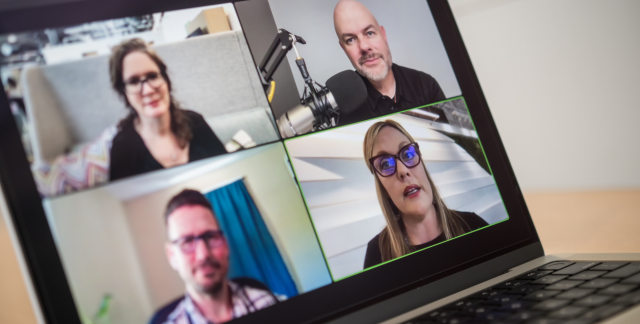 How to be a better Remote Leader
How to be a better Remote Leader
Tags: HR, Leadership, Management
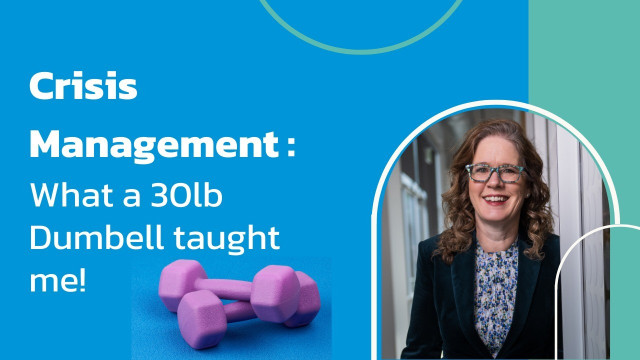 Crisis Management: What a 30lb Dumbell taught me
Crisis Management: What a 30lb Dumbell taught me
Tags: HR, Leadership, Management
 3 Quick Tips for Expressing Gratitude at Work
3 Quick Tips for Expressing Gratitude at Work
Tags: Leadership, Management, Mental Health
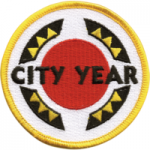 City Year
City Year
Tags: Management, Leadership, Culture
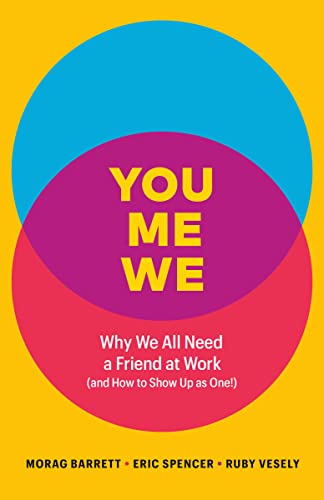 You, Me, We: Why We All Need a Friend at Work (and How to Show Up As One!)
You, Me, We: Why We All Need a Friend at Work (and How to Show Up As One!)
Tags: Social, Management, Leadership
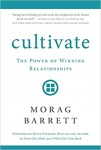 Cultivate: The Power of Winning Relationships
Cultivate: The Power of Winning Relationships
Tags: Management, Leadership, HR
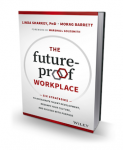 The Future-Proof Workplace
The Future-Proof Workplace
Tags: Management, Leadership, HR, Future of Work
 How to avoid "Talking to the Mirror" - nurturing your relationships and sense of team while working-from-home
How to avoid "Talking to the Mirror" - nurturing your relationships and sense of team while working-from-home
Tags: HR, Leadership, Management
Tags: HR, Leadership, Management
 Ally or Adversary? The Three Secrets to Cultivating Winning Relationships
Ally or Adversary? The Three Secrets to Cultivating Winning Relationships
Tags: HR, Leadership, Management
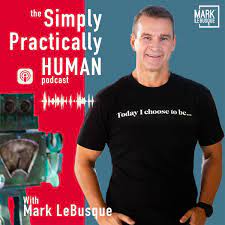 Simply, Practical Human With Mark LeBusque
Simply, Practical Human With Mark LeBusque
Tags: Management, Leadership

Tags: Management, Leadership, Entrepreneurship
 Every CEO needs to claim the power of the pause
Every CEO needs to claim the power of the pause
Tags: Management, Leadership, HR

Tags: Management, Leadership, HR
Tags: HR, Leadership

Tags: Leadership

Tags: Management, Leadership, HR

Tags: Management, Leadership, HR

Tags: Management, Leadership, HR

Tags: Management, Leadership, Business Strategy
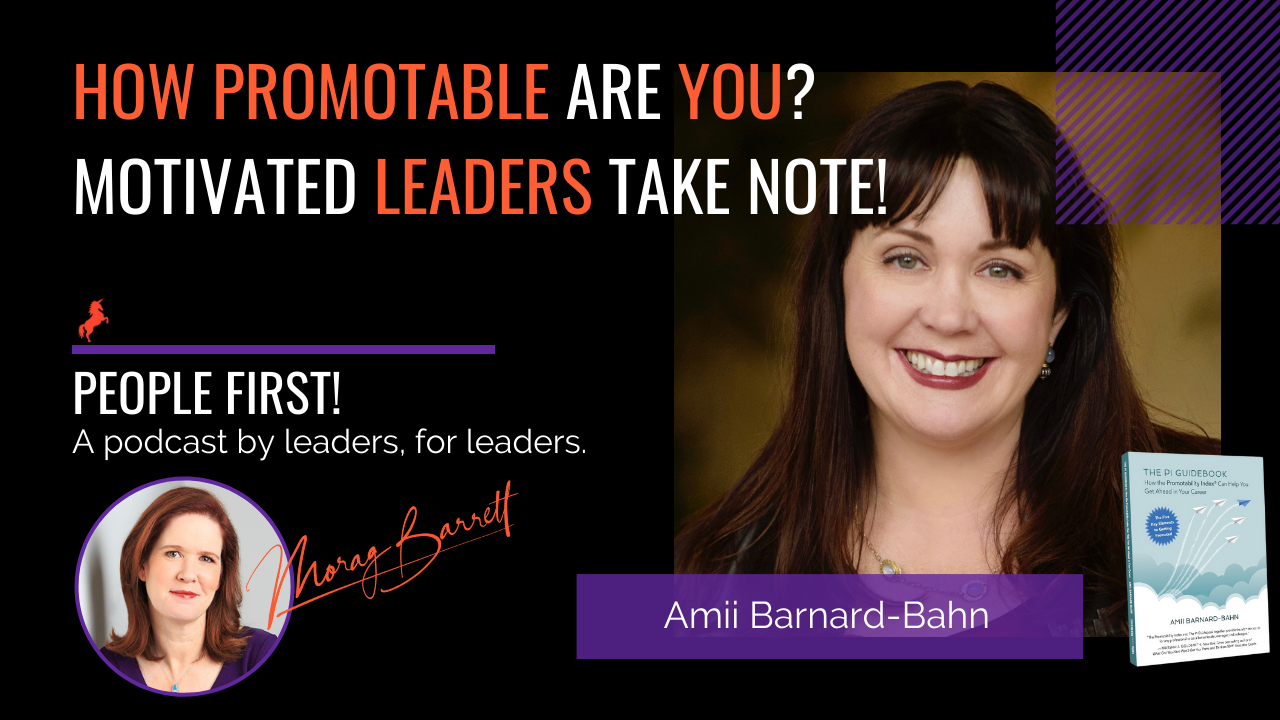 Simply, Practical Human With Mark LeBusque
Simply, Practical Human With Mark LeBusque
Tags: Leadership, Management

Tags: Management, Leadership, Business Strategy

Tags: Design Thinking, Leadership, Business Strategy

Tags: Leadership, HR, Project Management
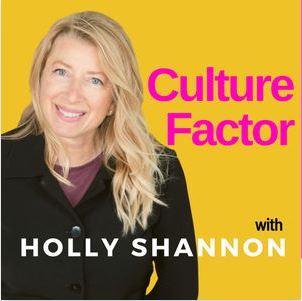 Culture Factor 2.0 - Morag Barrett: What Does Your Relationship Ecosystem Look Like?
Culture Factor 2.0 - Morag Barrett: What Does Your Relationship Ecosystem Look Like?
Tags: Leadership, HR, Culture

Tags: Leadership
 People First!
People First!
Tags: Management, Leadership

Tags: Management, Leadership, HR
Tags: HR, Leadership
Tags: HR, Leadership, Management
Tags: HR, Leadership, Coaching
 https://www.speakerbookingagency.com/talent/morag-barrett
https://www.speakerbookingagency.com/talent/morag-barrett
Tags: HR, Leadership, Management

Tags: Leadership, Mental Health

Tags: Leadership, Mental Health

Tags: Leadership, Mental Health

Tags: Leadership, Mental Health

Tags: Leadership, Mental Health

Tags: Leadership, Mental Health

Tags: Leadership, Mental Health

Tags: Leadership, Mental Health

Tags: Leadership, Mental Health

Tags: Leadership, Mental Health

Tags: Leadership, Mental Health

Tags: Leadership, Mental Health

Tags: Leadership, Mental Health

Tags: Leadership, Mental Health

Tags: Leadership, Mental Health

Tags: Leadership, Mental Health

Tags: Leadership, Mental Health, Culture

Tags: Leadership, Mental Health

Tags: Leadership, Mental Health

Tags: Leadership, Mental Health, Culture

Tags: Leadership, Mental Health

Tags: Leadership, Mental Health

Tags: Leadership, Mental Health

Tags: Leadership, Mental Health

Tags: Leadership, Mental Health
 Ally or Adversary? The Three Secrets to Cultivating Winning Relationships
Ally or Adversary? The Three Secrets to Cultivating Winning Relationships
Tags: Leadership, Management
Tags: HR, Leadership
Tags: HR, Leadership, Management
 What Brings Out The Best In You at Work?
What Brings Out The Best In You at Work?
We spend countless hours in meetings, exchanging emails, and project updates, yet few leaders pause to ask their team members:
"What brings out the best in you at work?"
It's simple. According to a recent study, companies that truly engage with their employees see up to a 21% increase in productivity. On the flip side, disengagement costs U.S. companies an estimated $450 billion to $550 billion each year. So, asking the right questions isn’t just a nice-to-have; it changes everything.
Here's the real issue: Workplaces too often run on assumptions.
Leaders often think they know what motivates their teams. Team members might assume leaders don't really want to know. This silent gap leads to mixed signals, resulting in both parties feeling unappreciated and misunderstood, fostering anxiety and resentment. Such emotional undercurrents can quickly turn into deep-seated disengagement and frustration.
And when it comes to motivating their teams, many leaders will typically try:
These only scratch the surface. They don't address how each person actually does their best work.
There's a better way.
I recently coached a leader puzzled by his project manager, Sarah's quiet struggles. I suggested he simply ask her, "What brings out your best work?" She replied, "I do my best work when I can solve problems without constant check-ins. I need space to think."
The leader went silent, feeling the weight of realization settle in. His shoulders relaxed, and he took a deep breath, recognizing that he'd been micromanaging her without realizing it. Those weekly status meetings that he thought were helpful? They were draining her energy. I watched as his face transformed, the pieces finally clicking into place.
Once he gave Sarah some breathing room, everything shifted. She hit deadlines early and started volunteering more of her ideas in meetings. Her whole presence changed. He realized that his good intentions were getting in the way of her best work. To create this breathing room, he reduced meetings and set outcome-only checkpoints. By allowing Sarah more autonomy, she thrived and contributed more effectively.
In my books Cultivate and You, Me, We, I show leaders how to replace assumptions with curiosity. This one question is one of the simplest ways to build trust and tap into what really drives people.
When you consistently seek to understand your people as people, not just job titles, the shift is immediate. Energy rises. Communication improves. Teams hit their stride.
Try it today. Ask one colleague this question. Then listen without jumping in. Reflect for a moment: Who on your team needs this today, and when will you ask? You'll be amazed at what you discover.
_______________________________________
Morag Barrett is a sought-after keynote speaker and executive coach, helping leaders and organizations around the world create cultures of connection. Her mission: to create workplaces where people thrive. Her mantra: Success in business is powered by relationships. Success in life is fueled by connection. Invite her to speak at your next event or work with your team to turn everyday interactions into Meaning-FULL Connectivity™.
Tags: Coaching, Leadership, Management
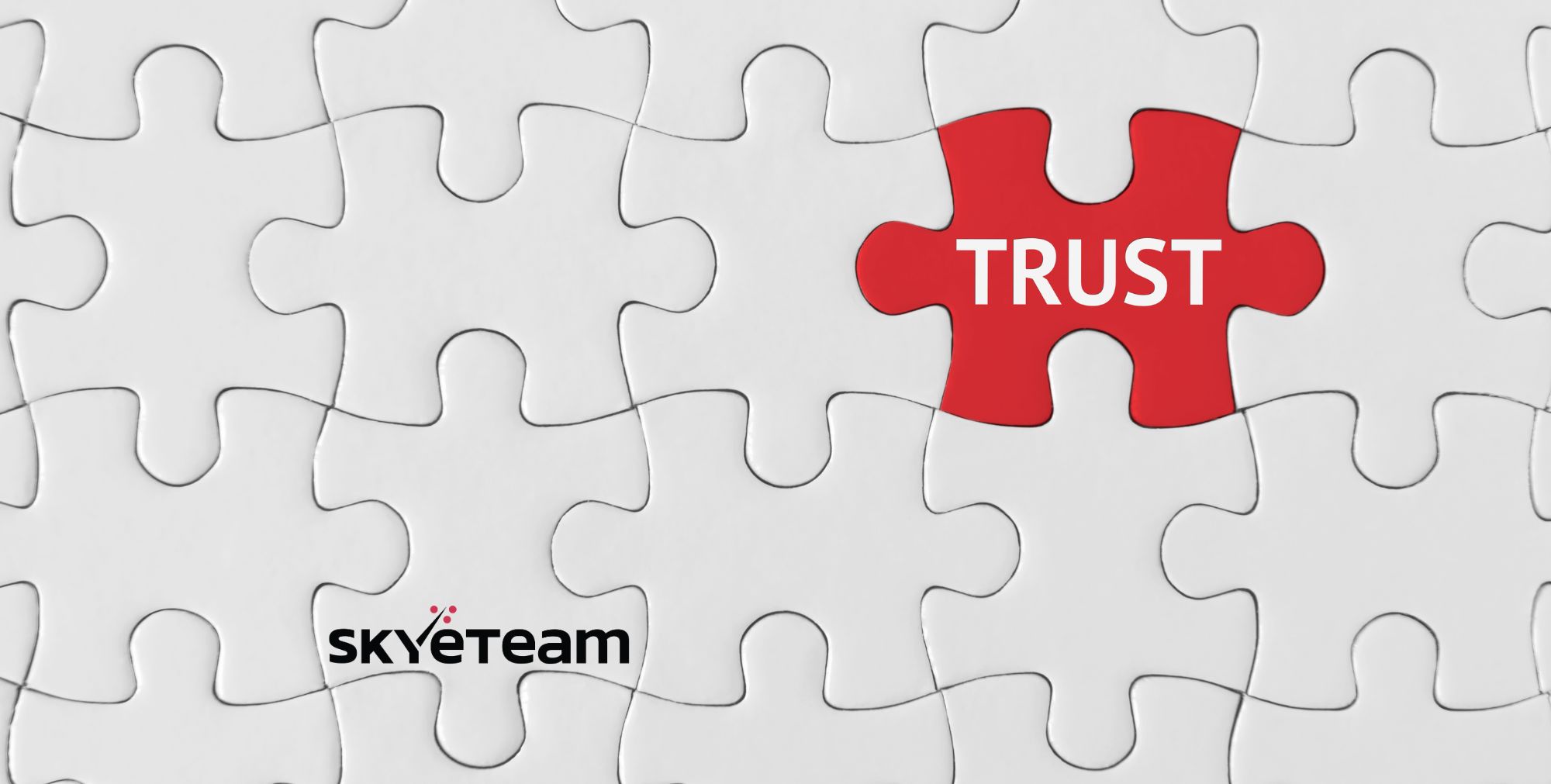 The Four Yeses: The Foundation of Winning Relationships
The Four Yeses: The Foundation of Winning Relationships
Every time we engage with someone at work, whether we realize it or not, we are asking these four questions. If the answer is yes to all of them, trust and strong relationships flourish. If the answer is no—things start to fall apart.
This is the foundation of any professional relationship. Will you show up? Follow through? Do what you say you’ll do? This is the baseline for teamwork—without it, we’re just a group of individuals working in the same place, not colleagues.
This takes reliability a step further. Beyond reacting when asked, do you proactively step up? Do you notice what needs to be done and handle it? Dependability turns colleagues into true collaborators.
These first two questions are transactional. They help teams function—but they don’t create true workplace relationships. That’s where the next two questions come in.
No, this doesn’t mean we need to be best friends or grab drinks after work. But it does mean recognizing that we are people, not just job titles. Do I take time to understand what matters to you? Do I care about your success as much as my own? Without a yes here, relationships stay surface-level and disengaged.
This is the game-changer. Do I trust you enough to be honest? To share concerns, ideas, and even failures without fear of judgment? Without trust, collaboration is forced, feedback is withheld, and teams never reach their full potential.
And yet, this is the very question that leaders hold back on. They assume trust must be earned over time—but they’re forgetting that trust is also given.
How to Build Trust Faster (Without Just Giving It Away Blindly)So how do you accelerate trust? How do you move from heck no → not yet → heck yes in weeks or months instead of years?
Be upfront about your expectations. - Leaders often assume their teams know what trust looks like to them. They don’t. Say it out loud:
"Here’s what trust means to me. Here’s how I know I can count on you. Here’s what you can expect from me."
Clarity accelerates trust.
Look for reasons to trust—not just reasons to doubt. - Too many leaders scan for mistakes instead of evidence of reliability. If someone has been delivering results for years, don’t make them start from zero just because you’re new to the equation.
Go first. - Trust isn’t just earned—it’s given in small moments. Share something real. Ask for input. Be transparent about what you don’t know. The fastest way to get trust? Show it.
Tags: Careers, Coaching, Leadership
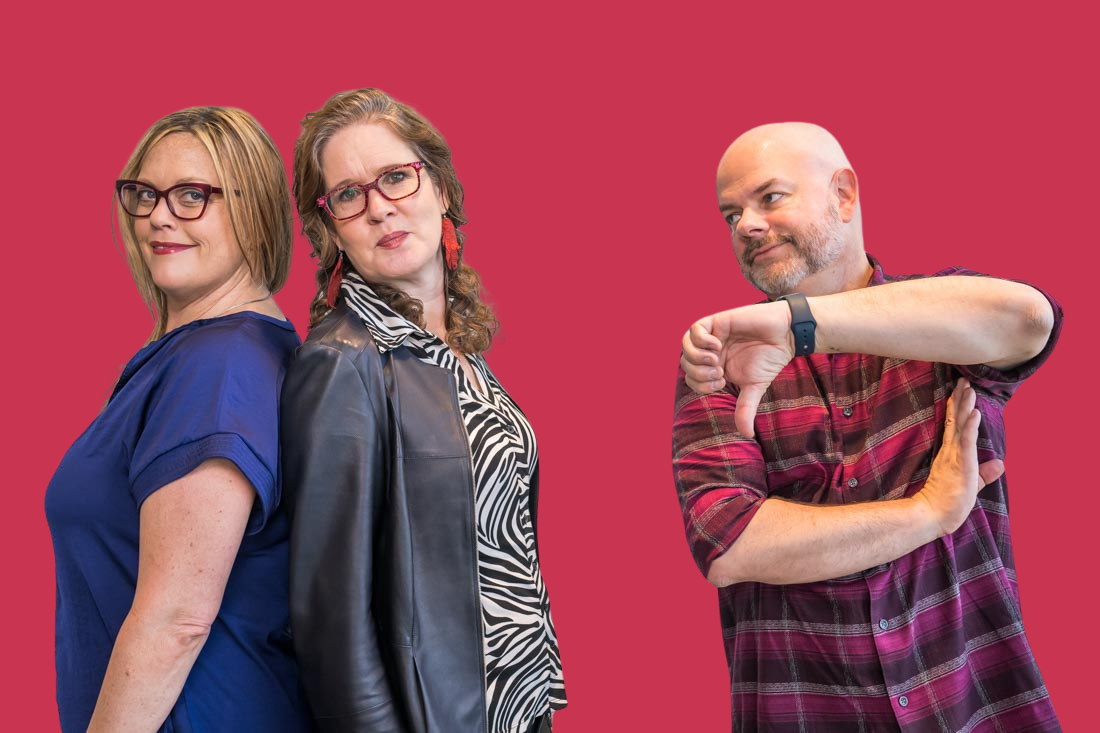 Maintaining Strong Professional Relationships With Your Co-Workers—Even If You Don't Always See Eye to Eye
Maintaining Strong Professional Relationships With Your Co-Workers—Even If You Don't Always See Eye to Eye
Let’s be honest: working with other people can sometimes feel like running a three-legged race with someone who’s going in a completely different direction. But here’s the thing—strong relationships at work are key to success, whether you’re fresh out of college or a seasoned pro who’s seen it all. So, how do you keep those relationships solid, especially when you’re not exactly seeing eye to eye? I’ve got three tips that will help keep your professional connections intact—even when you don’t agree on everything.
Open and honest communication is the backbone of any strong relationship. But here’s the catch—it’s not about turning into a feedback machine spitting out “constructive criticism” 24/7. Instead, it’s about being open to receiving feedback yourself (yes, even the kind that makes you cringe), and being thoughtful when it’s your turn to give it. Also, let’s be real: no one is a mind reader, so share your goals and expectations. When both sides know where the other is coming from, it becomes a lot easier to build a genuine, trusting working relationship—even when you disagree on something.
We’ve all had that co-worker who interrupts just when you’re finally in the flow. Respecting each other’s time and space is huge when it comes to maintaining solid work relationships. It’s like an unspoken agreement: “I’ll respect your time if you respect mine.” That means being mindful of personal space (no need to hover over someone’s desk like a hawk) and knowing when to leave people alone so they can actually get work done. Bonus points for respecting each other’s boundaries—it’s one of the most underrated, yet essential, components of a healthy work dynamic.
Here’s the kicker: you don’t have to agree on everything (in fact, it’s probably better that you don’t), but you do need to be able to compromise. Think of it as finding that sweet spot between “my way or the highway” and “I’ll just go along with whatever.” Compromise doesn’t mean giving up your ideas—it means being flexible enough to find common ground. When you show you’re willing to work together, even if it means meeting in the middle, you prove that you’re a team player. And guess what? That’s the stuff that builds trust, respect, and—ultimately—strong professional relationships.
So, there you have it—three tips to help you keep your work relationships strong, even when you don’t see eye to eye. Communicate openly (with a dose of empathy), respect each other’s time and space (seriously, it’s not that hard), and be willing to compromise (but stand your ground when it matters). Do that, and you’ll be well on your way to maintaining great working relationships—even with the people who drive you a little nuts sometimes.
Now, I’d love to hear from you! How do you navigate tricky work relationships? Got any tips or stories to share? Drop a comment or let’s connect on LinkedIn.
Tags: Leadership, Management
 Leading Beyond Your Authority: The Secret to Senior Leadership
Leading Beyond Your Authority: The Secret to Senior Leadership
Are you leading beyond your authority? If not, it’s time to start.
In today’s complex, dotted-line organizational jungle, getting things done often requires you to influence people who don’t report to you—and might not even know you exist. The challenge? Doing this without pulling out the “Because I said so” card. Spoiler alert: It’s a tough sell if you confuse leadership with authority. (Hint: They’re not the same.)
Despite what your basic leadership training might have told you, guiding people outside your official realm is not just possible; it’s essential. But first, you need to understand what leadership really is and how it shows up to those who are watching you (yes, they’re watching).
Leadership vs. Authority: Who’s the Boss?
Let’s clear something up: authority and leadership are two different animals. Authority says, “Do this because I have the power.” Leadership says, “Let’s achieve this together because it’s worth it.”
Authority may get compliance, but leadership gets commitment. It turns out that people do their best work when they’re inspired, not when they’re forced. They crave purpose, satisfaction, and a sense of accomplishment—not just another line item in their job description. When people feel valued, they’re more likely to be engaged. And that’s where the magic happens.
Leadership inspires; authority obligates. Sure, authority lets you direct, decide, and delegate, but leadership? Leadership sets the vision and makes people want to reach it. This is done through influence—pure and simple. When people are positively influenced, they follow willingly. And that, my friends, is the essence of true leadership.
Influence: The Secret Sauce of Leadership
Leadership success hinges on your ability to influence others. Period. It's about making people want to follow you, not because they have to. Following a leader is a choice, and it’s one that’s earned through trust, respect, and shared purpose. If you think you can mandate it, you’re in for a rude awakening.
As Liz Wiseman brilliantly explains in Multipliers: How the Best Leaders Make Everyone Smarter. Wiseman notes, "The best leaders are those who use their intelligence to amplify the capabilities of the people around them." In other words, leaders who focus on empowering and influencing others create an environment where everyone thrives. And let’s face it—people naturally resist when they feel controlled, but they excel when they feel supported and inspired. She’s right—human behavior drives everything, and people naturally resist when they feel controlled.
Even though almost everyone has the potential to influence and lead in some way, many leaders fall back into the trap of relying on their authority. Big mistake. Research shows that authority alone doesn’t guarantee effective leadership. Just look around—you don’t have to search far to find examples of powerful positions that produced some of the poorest leadership outcomes.
Why Influence Matters
Your ability to influence people is what will determine your success in leading those who don’t directly report to you. In future posts, I’ll share strategies on how to expand your sphere of influence and take your leadership to the next level.
But for now, let’s consider a practical framework to help you lead beyond your authority effectively:
Look Up, Show Up, Step Up
Look Up: Recognize the importance of relationships and credibility. Understand the broader landscape of your organization and identify where your influence is most needed.
Show Up: Be present and intentional in your interactions. Build trust by showing genuine interest in others and demonstrating reliability. When you show up consistently, people start to see you as a dependable leader, regardless of your official title.
Step Up: Take initiative to strengthen relationships, even beyond your immediate circle. Position yourself as a credible leader by consistently delivering on your commitments. Stepping up means being proactive in offering solutions and being the first to volunteer when challenges arise.
By following this framework, you can build stronger relationships, expand your influence, and establish yourself as a leader who inspires others to follow willingly.
So, what about you? Are you leading beyond your authority? I’d love to hear from you. Let’s chat!
Tags: Management, Leadership, HR
 The Secret to Thriving at Work: How Prioritizing Mutual Success Can Transform Workplace Friendships
The Secret to Thriving at Work: How Prioritizing Mutual Success Can Transform Workplace Friendships
Having friends at work doesn’t just make your day more enjoyable—it’s also a powerful driver of productivity, engagement, and commitment. It turns out that meaningful workplace connections can significantly enhance our professional lives, not just emotionally but also in terms of performance.
In You, Me, We: Why We All Need a Friend at Work (and How to Show Up as One!), we explore how workplace friendships are among the strongest predictors of productivity. The research shows that when we feel connected to our colleagues, we’re more likely to make better decisions, stay engaged in our tasks, and remain committed to our goals.
Yet, despite these benefits, building friendships at work isn’t always straightforward. Organizational hierarchies and the perception of ulterior motives can make forming these relationships feel like a balancing act. However, these work-place connections are vital to our psychological and physical well-being. Simply put, we can’t perform at our best unless we feel connected to others.
The philosopher Aristotle identified three types of friendships, each serving different purposes:
In the workplace, these types of friendships often overlap. The culture of your organization likely has unspoken rules about the appropriate boundaries and depths of these relationships. But when nurtured correctly, even friendships of utility can evolve into something more meaningful and mutually beneficial.
Drawing from the insights in You, Me, We, if you want people to like you, make them feel good about themselves. This principle is fundamental in cultivating any relationship, whether it’s personal or professional.
When you focus on making others feel valued and understood, they’re more likely to reciprocate and engage with you positively. This seems simple, but our own egos often get in the way. We’re naturally inclined to seek validation and attention for ourselves.
Our research shows that the old adage, "prioritize the other person’s needs and feelings over your own desire to impress," might actually do more harm than good. This mindset can lead to saying 'yes' when we should say 'no,' people-pleasing, and ultimately doing what others want at our own expense. Instead, the true key to building strong relationships is to prioritize the other person’s needs and feelings alongside your own. It's the AND of life—how can I help you be successful while also ensuring my own success?
This approach shifts us away from the outdated win-lose, scarcity mindset and towards a philosophy of abundance and generosity. It’s about focusing on how we can be better together, creating outcomes where both parties benefit. Whether it's sharing the credit for a successful project or collaborating to overcome a challenge, embracing this balanced perspective strengthens relationships and builds a more supportive and productive work environment.
For two people to deeply connect, it’s essential to move beyond surface-level interactions. As we discuss in Cultivate. The Power of Winning Relationships, relationships thrive on shared experiences and honest communication. The concept of self-disclosure—gradually sharing more personal details as trust builds—is crucial for deepening any relationship.
However, in a competitive work environment, this can feel risky. To navigate this, consider these practical steps:
Look Up, Show Up, Step Up
To truly cultivate meaningful friendships at work, follow the "Look Up, Show Up, Step Up" framework from You, Me, We:
Friendships at work aren’t just a nice-to-have; they’re a must-have for a fulfilling and successful career. If you’re looking to deepen your workplace friendships, try these suggestions and watch how your professional life transforms.
Tags: HR, Leadership, Management
 Turning Leadership Trials into Triumphs: A Lighter Look at Overcoming Adversity
Turning Leadership Trials into Triumphs: A Lighter Look at Overcoming Adversity
As a leader, when adversity knocks, do you open the door with a frown, or greet it with a grin? [link to your posts on adversity or resilience]
Navigating through crises not only puts your leadership to the test but actually shapes it. How you respond to these moments speaks volumes about your effectiveness. Sure, some challenges are tough—no joke there—but often the bigger issue is how leaders handle them. Remember, the school of hard knocks doesn't offer diplomas in adversity management!
However, don't fret! Leaders can absolutely master the art of bouncing back with a few strategic moves. It’s about turning setbacks into setups for future success.
From Setback to Success
Overcoming adversity is not just about bouncing back; it's about turning challenges into opportunities for growth. Here's how you can pivot from setback to success using strategies inspired by real-world resilience:
Build Core Strengths: Just like in physical fitness, preparing for business challenges means strengthening core competencies. Regularly assess and develop your team's skills to ensure they're robust enough to handle crises.
Manage Momentum: Recognize when projects are gaining speed and might lead to overwhelm. Adjust your team's focus and resources to maintain control and prevent burnout.
Mitigate Risks: Pay attention to the small details that could cause significant problems. Encourage open communication where team members can identify and address potential risks before they become real issues.
By fostering a culture of preparedness, awareness, and proactive response, leaders can guide their teams through crises not just intact but stronger and more united.
Take a moment to reflect on the last big challenge you faced. How did you handle it? Did you turn your setback into a success? Let's chat more about it—I’m just an email or LinkedIn message away.
Tags: Leadership
 The Power of Learning, Unlearning, and Relearning
The Power of Learning, Unlearning, and Relearning
The challenge we all face is that we’re already successful. You have succeeded because of what you know, do, and how you show up. But here’s a little nugget from Dr. Marshall Goldsmith: “What got you here won’t get you there.” So, what are you unlearning? What are you relearning? What are you learning for the first time? Embrace the beginner’s mindset and keep evolving.
I’m heading to a Team Coaching workshop in London this month. Why? Because I want to expand my toolkit, learn from other participants, and soak up wisdom from professors who’ve studied team dynamics for over two decades. It’s all about keeping that learning curve sharp and steep.
I’m also on a journey to unlearn perfectionism. High standards are great, but sometimes, aiming for perfection in every detail can be more hindrance than help. I’m learning that having great standards can be enough. By easing off the pressure of dotting every “i” and crossing every “t”, I’m creating the space to focus on a few projects at a time instead of trying to tackle all projects simultaneously. This shift not only boosts productivity but also enhances the quality of my work and personal well-being.
Let’s get real. The high pace of change can be overwhelming. Alvin Toffler called it “future shock.” But rather than being shocked, let’s be prepared. Embrace learning, unlearning, and relearning as vital skills for navigating this ever-changing world. Are you investing in your learning and adaptability to embrace new roles?
Before diving into the how, it’s essential to figure out the what. What new skills do you need? What can you take from good to great? Maybe you want to learn something just for the joy of it. Here are a few questions to help you identify your learning goals:
Take a moment to reflect and jot down your learning goals. This will give you a roadmap for your learning journey.
Once you’ve identified what to learn, the next step is figuring out how to acquire this new knowledge. Here are five practical suggestions:
Don’t wait for things to quieten down at work before you start your learning journey, or for that one big project to wrap up. These are false summits. There is always another busy day, another project that will more than fill the space you anticipate.
Instead, be your own ally, and make the choice to start investing in yourself today. Five minutes, 15 minutes, 50 minutes of deliberate learning and growth could be the difference between staying stagnant and propelling your career forward. So, take that first step and commit to continuous learning—you’ll thank yourself later.
Remember, lifelong learning is a continuous process. By looking up to identify what to learn, showing up to gain new knowledge, and stepping up to start today, you’re setting yourself on a path to personal and professional growth.
Tags: Future of Work, HR, Leadership
 The Power of Digital Reach and Human Touch: Navigating the Modern Professional Landscape
The Power of Digital Reach and Human Touch: Navigating the Modern Professional Landscape
Recently, a dear friend shared their frustration with me after being bypassed for a role, not due to a lack of skill or an impressive 20-year career, but because their social media following didn't meet the expected threshold. It was a stark reminder of the complex interplay between our digital presence and our real-world expertise in today's landscape.
In this digital age, it's undeniable that an online presence holds value, whether it's for personal branding, networking, or sharing insights. My own journey has seen moments of joy from viral content, like my "Leadership lessons from a dog owner" article that went viral in Australia, showcasing the reach and impact digital platforms can offer.
However, it's essential to navigate this digital sphere without losing sight of the profound importance of genuine, human connections. The true measure of support isn't found in likes or follows but in the depth and quality of the relationships we nurture both online and offline.
The insights from our research and best-selling book "You, Me, We" highlighted a poignant reality: many feel a sense of isolation within their professional circles, with 20% of leaders sharing they had no friends at work. No one they could turn to on the good days, or as importantly, on their toughest days. Underscoring the need for both a supportive network and meaningful one-to-one connections. This dual approach enriches our professional journey, offering both the breadth of reach that digital platforms provide and the depth of personal interactions that build trust and resilience.
The key is to integrate our digital endeavors with our personal connections. Embracing social media as a tool for expansion while also investing in close, supportive relationships creates a robust network. This synergy between our online influence and our offline alliances ensures we're not just visible but also genuinely supported in our endeavors.
The fabric of strong teams and successful collaborations is woven from the threads of trust and mutual support. True success and fulfillment come from the depth and quality of our relationships, not just the breadth of our digital networks. Realizing that the most impactful connections are often already within our reach, it's about nurturing those relationships and being a steadfast ally to others. Remember, it is at the intersection of our of digital reach and human connection where the secret to success lies.
Tags: Leadership
Location: virtual Fees: tbd
Service Type: Service Offered
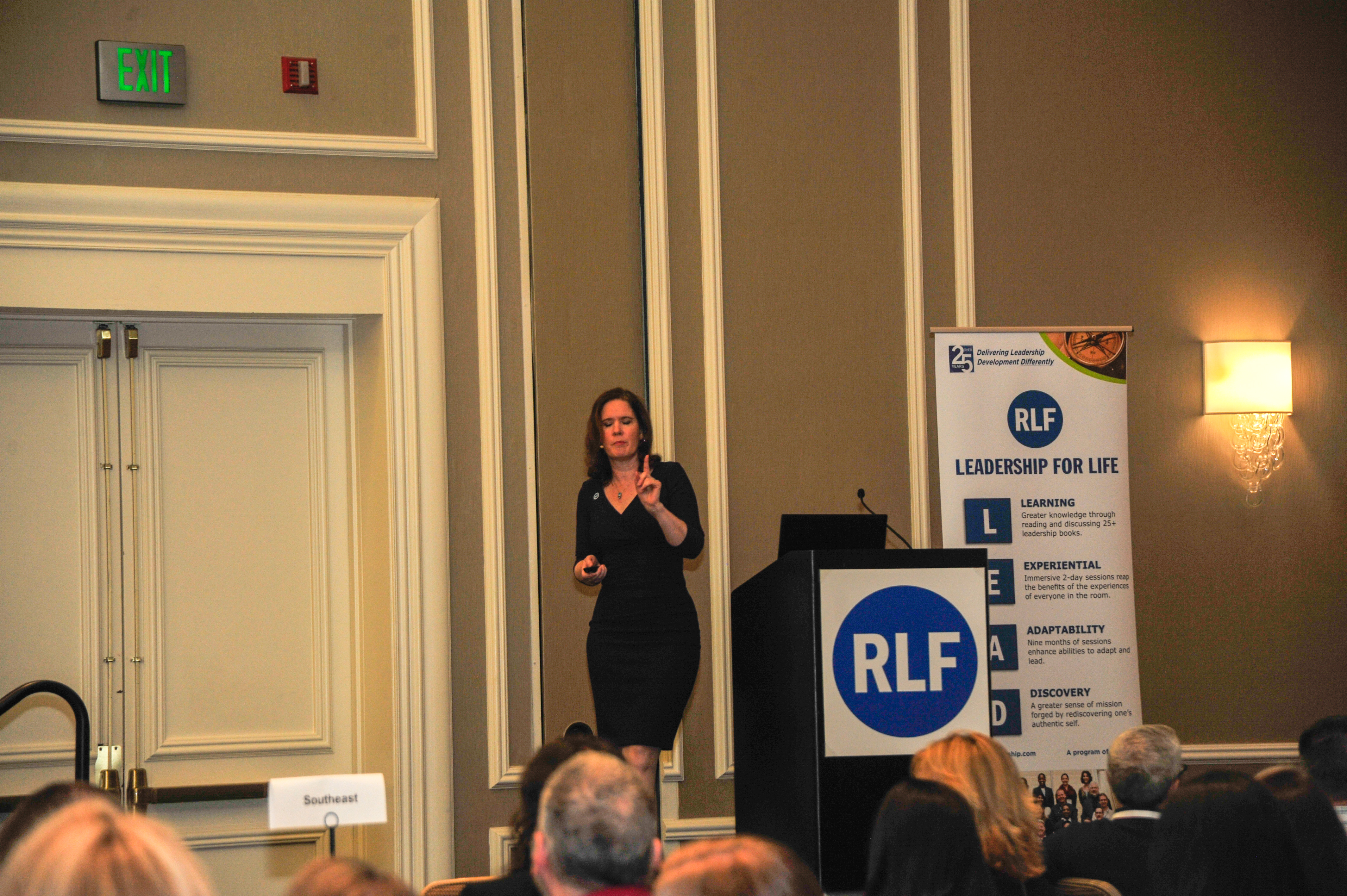 Does Your Leadership Pass the Test?
Does Your Leadership Pass the Test?
Location: Detroit Chapter Date : July 28, 2020 - July 28, 2020 Organizer: Society for Information Management
 Permission To Be You: Discover Your Passion, Embrace Purpose, Live Life Meant For You - Alaina Love
Permission To Be You: Discover Your Passion, Embrace Purpose, Live Life Meant For You - Alaina Love The Science of Leadership: Ways to Expand Your Leadership Impact with Margaret Moore & Jeffrey Hull
The Science of Leadership: Ways to Expand Your Leadership Impact with Margaret Moore & Jeffrey Hull Manage Yourself to Lead Others: Why Self-Awareness is Key to Great Leadership w/ Margaret C. Andrews
Manage Yourself to Lead Others: Why Self-Awareness is Key to Great Leadership w/ Margaret C. Andrews What Brings Out The Best In You at Work?
What Brings Out The Best In You at Work? The Four Yeses: The Foundation of Winning Relationships
The Four Yeses: The Foundation of Winning Relationships